A little over six years after the erstwhile partners split, the battle between Hero MotoCorp and Honda Motorcycle & Scooter India has entered a critical stage in the Indian market, with the sales gap between the two-wheeler industry leaders narrowing to a record low in April 2017.

The story of Hero and Honda, the two major players in the twowheeler industry in India, continues to enthrall industry watchers. The partnership which began in 1984 and ended in 2010 is now poised in a critical phase. The friends turned foes are entrenched in a no-holds-barred battle. In April 2017, their sales numbers were separated by 33,923 units, the closest they have ever come. While Hero MotoCorp sold 585,655 units with a 35 percent share of the twowheeler market, HMSI was close behind with 551,732 units and a 33 percent market share. The No. 3 player, TVS Motor Co is way behind with 12.3 percent.
It may be recollected that at the time of the split in December 2010, the Cassandras had predicted the fall of Hero MotoCorp mainly due to the challenge of brand positioning and the absence of indigenous technology and R&D. And the fact that Honda would roll out a flurry of fuelefficient 100cc commuter motorcycles, hitting Hero where it would hurt most – fuel efficiency.
However, in the years following the amicable parting of ways, Hero MotoCorp has taken the challenge on its chin and delivered in spades – both on the brand positioning front as well as the technology front. In fact, the home-grown company is driving a new R&D paradigm with its state-ofthe-art Global Centre of Innovation and Technology (CIT) in Kukas, Jaipur, Rajasthan.
Hero MotoCorp’s aggressive posturing clearly meant that Honda did not have as smooth a run as it felt it could have had. In fact, the company, which had declared its goal to be India’s No. 1 twowheeler player by 2016, was compelled to revise its target to the year 2020.
This story is from the June 15 2017 edition of Autocar Professional.
Start your 7-day Magzter GOLD free trial to access thousands of curated premium stories, and 9,000+ magazines and newspapers.
Already a subscriber ? Sign In
This story is from the June 15 2017 edition of Autocar Professional.
Start your 7-day Magzter GOLD free trial to access thousands of curated premium stories, and 9,000+ magazines and newspapers.
Already a subscriber? Sign In

Spain's Fersa Group invests in India-based Delux Bearings
Besides theRs100 croreinvestment, the Indian company gets access toadvanced technologies and bearings with arange of applications that willhelpinits global growth strategy, writes Manobhava Baruah.
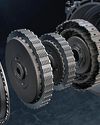
Tata Autocomp to open compact dual-clutch transmission plant
Amidthe country’s growing need for personal mobility with easy manoeuvrability, comes the demand for vehicles with automatic transmission. Tata AutoCompisready tomovein writes Shruti Mishra.

Pankaj Munjal-backed Hero Motors raises equity from GEF Cap
The company willinvest Rs1,500 crore over thenextthree years andit expects 60 percent ofits turnover to come fromelectric vehicle parts. Itaims to becomea Global EV Solutions Company from India
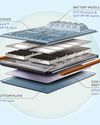
New age thermoplastics for next-generation EV batteries
Saudi-based global materials major SABIChas developed cutting edgein fire-resistant polymers and flame-retardant materials that comply with various EV battery safety standards across the world.
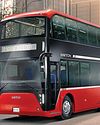
Switch Mobility to meet growing e-bus demand with fresh capex
Oncourse for abillion-dollar business, the company is exploringa possibility of operating satellite factories across the country to serve different geographies, write ShahkarAbidi and Ketan Thakkar.
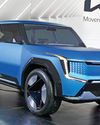
Kia India to invest Rs 2,000 crore in EVS, to introduce new e-RV in 2025
New investmentto drive R&D, infrastructure development and manufacturing capabilities. The company willlocally produce EVsin India with possibility of exports as well, writes Mayank Dhingra.

"The government has given enough time for indigenisation but the industry has not taken it seriously"
Amitabh Saran, Founder and CEO, Altigreen, shares his views on problems inthe EV industry and battery localisation solutions with Amit Vijay M.
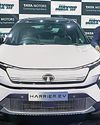
TATA MOTORS SEES ONE INTWO CARS SOLDAS EVS BY 2030
The company aims to offer wider choices withnew EVs that may straddle a pricebracket of Rs20to 40lakhinthe coming years, writes Ketan Thakkar.

MG Motor India in expansion drive, to invest $100 million
The investment willbe usedtoramp up existing production capacity from1.2to1.4-15lakh units per annum atthe automaker's Halol plantin Gujarat, writes Ketan Thakkar.

"Technology and its multiplier effect are driving business transformations and customer experiences"
Technical Centre India is one of Continental’s largest research and development centres in the world, andasa Centre of Competence’ it also develops customised products for the BRIC countries.